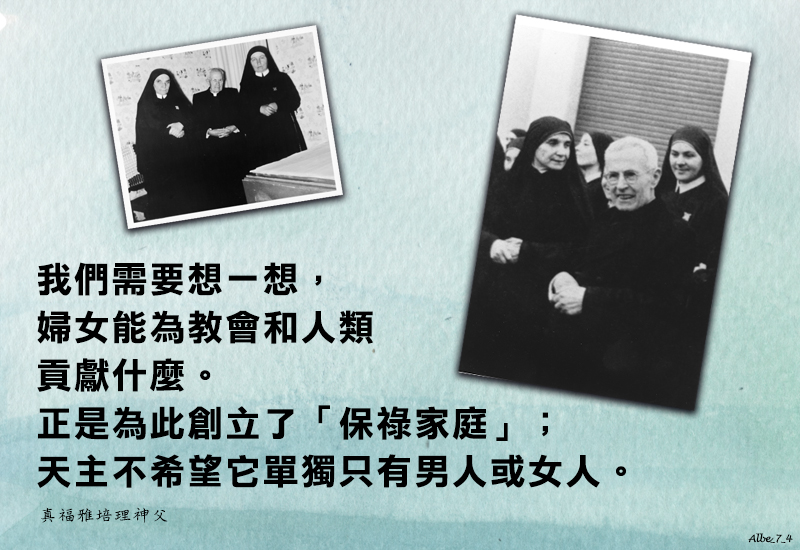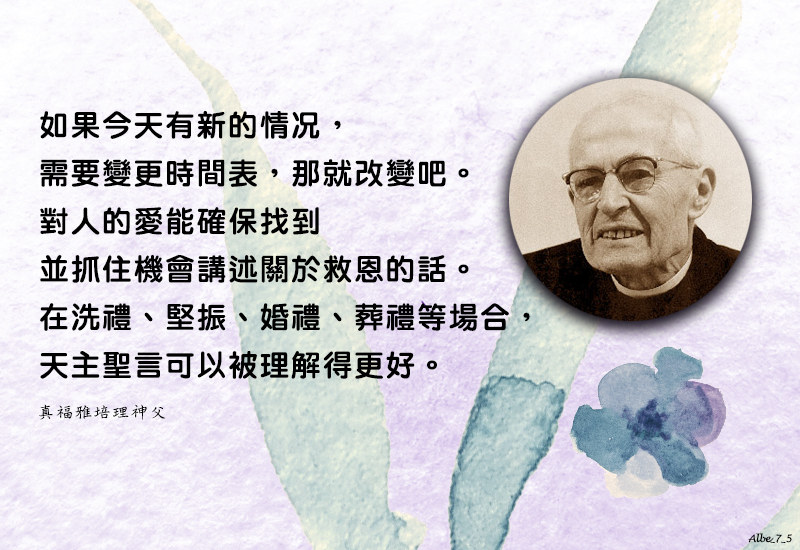我們没有任何人已是完美的
神聖的導師在《若望福音》第十七章「大司祭的祈禱」中重覆了四次「合而為一」,我們没有任何人是主人,而都是在服務。我們没有任何人已是完美的,而都是正在追尋完美的過程中。 The unum sint, repeated four times by the Divine Master in the priestly prayer, is an inspiration for us. All are at service, no one is a master; all are in search of perfection, no one is perfect (UPS I, 292).













